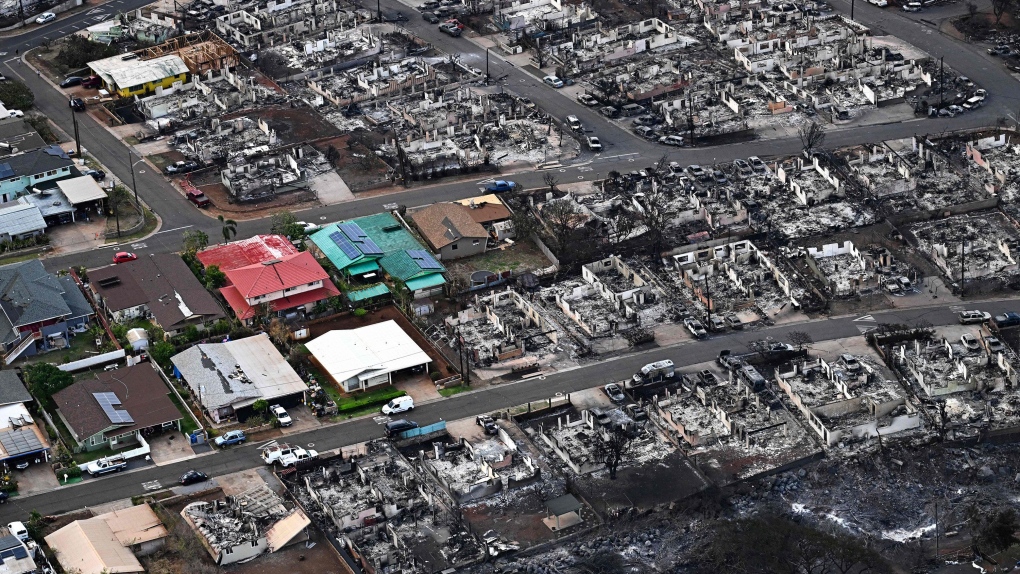Hawaii Bolsters Wildfire Defense with Statewide Sensor Network: A Step Towards Early Detection and Community Safety
Following the devastating Lahaina wildfire in August, Hawaii is taking a proactive approach to wildfire preparedness by installing a network of fire detection sensors across all the islands. This initiative, announced by Governor Josh Green, aims to equip first responders with a critical advantage in combating wildfires through early detection.
Early Detection Saves Lives: The Importance of Sensor Technology
Traditionally, detecting wildfires often relies on visual sightings or reports from the public. This delay in identifying a fire can be detrimental, allowing flames to spread rapidly and endanger lives and property.

The new sensor network addresses this challenge by offering real-time monitoring. These strategically placed sensors can detect heat signatures, smoke particles, and fire-induced gases in their earliest stages.
H3: How do the sensors differentiate between wildfires and other elements?
The sensors utilize advanced artificial intelligence (AI) and machine learning capabilities. This allows them to distinguish between anomalies like wildfire smoke and common elements present in the Hawaiian environment, such as volcanic ash and sea salt.
Governor Green humorously acknowledged the state’s barbecue culture, highlighting how the technology has been adapted to account for smoke from outdoor cooking.
Network Design and Functionality: Sensors Working Together
The fire detection sensors are deployed in a network format, enabling them to communicate with each other. This “string” configuration allows for comprehensive coverage and faster response times. Initial deployment will prioritize areas like Haleakala and Lahaina, locations significantly impacted by the August wildfire.
H3: How do the sensors transmit data?
Each sensor is equipped with a solar panel for self-powered operation and cellular data connectivity. Upon detecting a potential wildfire, the sensor transmits a text message alert directly to fire officials, ensuring a prompt response.
Cost-Effective Solution with Lasting Benefits
The initial rollout of the sensor network is being funded by the Department of Homeland Security Science and Technology Directorate and the U.S. Fire Administration, incurring no upfront cost for the state. This cost-effective solution offers significant long-term benefits for wildfire mitigation and community safety.
Beyond Sensors: Additional Measures for Wildfire Preparedness
The sensor network represents just one aspect of Hawaii’s comprehensive wildfire preparedness plan. Governor Green also announced the creation of emergency access roads in Lahaina to facilitate faster response and evacuation during wildfires. Additionally, Oahu will see the implementation of new evacuation routes to improve public safety during wildfires.
What happened during the Lahaina wildfire in August?
The August wildfire in Lahaina tragically claimed 101 lives. This event served as a stark reminder of the critical need for improved wildfire detection and response measures in Hawaii.
Related Keywords:
Hawaii wildfire detection sensors, early wildfire detection, Lahaina wildfire, wildfire preparedness, sensor network, AI in wildfire detection, wildfire safety, Hawaii emergency access roads, evacuation routes, wildfire mitigation
Frequently Asked Questions (FAQs)
Q: How accurate are these wildfire detection sensors?
A: The sensors utilize AI and machine learning for high accuracy. They are programmed to distinguish between wildfires and other environmental elements commonly found in Hawaii.
Q: When will the sensor network be fully operational?
A: The initial deployment of 80 sensors, with a focus on Maui, is expected to be completed by April 8th, 2024. The timeline for statewide coverage will be announced in future updates.
Q: How can I stay informed about wildfires in Hawaii?
A: Residents are encouraged to sign up for emergency alert systems in their respective counties. Local news outlets and official government websites will also provide updates during wildfire events.



